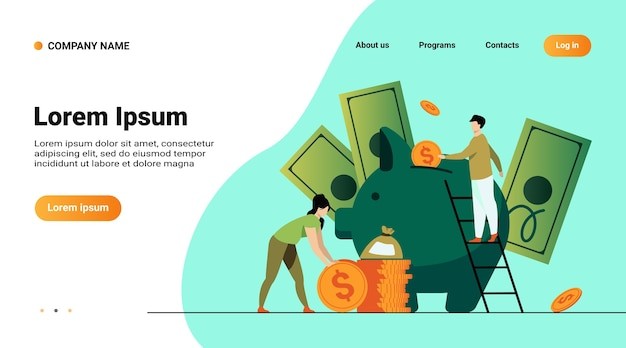Learning a new language can seem like a daunting task, but don’t let unrealistic promises fool you; while fluency in 6 months is unlikely, significant progress is achievable. At LEARNS.EDU.VN, we provide the tools and resources you need to embark on a successful language learning journey, focusing on effective strategies and realistic goals. Unlock your language learning potential and discover the resources available at LEARNS.EDU.VN to support your journey toward language proficiency.
1. Understanding the Reality of Language Learning Timelines
The internet is awash with promises of language fluency in remarkably short periods. However, it’s essential to approach these claims with a healthy dose of skepticism.
1.1 The Myth of 6-Month Fluency
While the idea of mastering a language in just six months is appealing, it’s crucial to understand that true fluency typically requires a more extended commitment.
Many advertisements and online courses promote the idea of achieving fluency in a new language within six months. However, “fluency” is a subjective term, and what one person considers fluent may differ significantly from another’s perspective.
1.2 Defining “Fluency”: A Matter of Perspective
The term “fluency” is often used loosely. It’s important to define what fluency means to you. Is it being able to hold basic conversations, understand complex texts, or conduct business in the language?
According to a study by the Modern Language Association, true fluency, characterized by near-native proficiency in all language skills, often requires several years of dedicated study and practice.
1.3 Factors Influencing Learning Speed
Several factors influence how quickly you can learn a language:
- Language Difficulty: Some languages are inherently more challenging for English speakers due to unfamiliar sounds, grammar, or writing systems.
- Time Commitment: The more time you dedicate to studying and practicing, the faster you will progress.
- Learning Methods: Effective learning methods, such as immersion, spaced repetition, and personalized instruction, can accelerate your progress.
- Motivation: A strong desire to learn the language can significantly boost your motivation and dedication.
- Prior Language Learning Experience: Previous experience learning other languages can make it easier to learn new ones.
1.4 Setting Realistic Goals
Instead of aiming for unrealistic fluency within six months, set smaller, achievable goals. For example, aim to:
- Learn basic grammar and vocabulary.
- Hold simple conversations on familiar topics.
- Read and understand basic texts.
- Write short emails or messages.
2. What Can You Realistically Achieve in 6 Months?
While full fluency may be out of reach in six months, you can still make significant progress and acquire valuable language skills.
2.1 Reaching Conversational Proficiency
With consistent effort and effective learning strategies, you can achieve conversational proficiency in six months. This means being able to:
- Understand and respond to simple questions.
- Express your basic needs and desires.
- Participate in everyday conversations on familiar topics.
- Navigate common situations, such as ordering food or asking for directions.
A study by the Foreign Service Institute (FSI) categorizes languages based on their difficulty for native English speakers. According to the FSI, it takes approximately 600-750 hours of study to achieve “general professional proficiency” in languages like Spanish, French, and German, which are considered Category I languages.
2.2 Building a Solid Foundation
Six months is enough time to build a solid foundation in a new language. This foundation will serve as a springboard for further learning and improvement.
2.3 Developing Good Learning Habits
The key to successful language learning is consistency and effective study habits. Six months provides ample time to develop these habits, which will benefit you throughout your language learning journey.
2.4 Immersing Yourself in The Language
| Method | Description | Benefits |
|---|---|---|
| Language Exchange | Connect with native speakers for language practice. | Practice speaking, learn colloquialisms, understand cultural nuances. |
| Media Immersion | Watch movies, listen to music, and read books in the target language. | Improve listening comprehension, vocabulary, and understanding of cultural context. |
| Travel | Spend time in a country where the target language is spoken. | Full immersion in the language and culture, accelerates learning through real-life interactions. |
| Language Learning Apps | Use apps like Duolingo, Babbel, or Memrise for structured lessons and practice. | Convenient, gamified learning experience, reinforces vocabulary and grammar. |
| Online Courses | Enroll in online courses that offer structured learning paths and personalized feedback. | Comprehensive learning experience, covers all aspects of the language, provides opportunities for interaction. |
| Private Tutoring | Work with a private tutor for personalized instruction and feedback. | Tailored learning experience, focuses on individual needs and goals, provides immediate feedback. |
3. Strategies for Maximizing Your Learning in 6 Months
To make the most of your six-month language learning journey, focus on effective strategies that accelerate your progress.
3.1 Immersion: Surround Yourself with the Language
Immerse yourself in the language as much as possible. This could involve:
- Listening to music and podcasts in the language.
- Watching movies and TV shows with subtitles.
- Reading books and articles in the language.
- Changing the language settings on your phone and computer.
- Surrounding yourself with native speakers.
Research from the University of Cambridge suggests that immersion is one of the most effective ways to learn a language, as it forces you to actively use and process the language in real-world contexts.
3.2 Active Learning: Engage with the Material
Don’t just passively consume information. Actively engage with the material by:
- Taking notes and summarizing what you’ve learned.
- Practicing speaking and writing.
- Asking questions and seeking clarification.
- Using the language in real-life situations.
Active recall, a learning technique where you actively try to remember information without looking at the source, has been shown to significantly improve retention and understanding.
3.3 Focused Practice: Target Your Weaknesses
Identify your weaknesses and focus on improving them. This could involve:
- Practicing specific grammar points.
- Learning new vocabulary related to specific topics.
- Working on your pronunciation.
- Getting feedback from native speakers.
Spaced repetition, a technique where you review information at increasing intervals, is particularly effective for memorizing vocabulary and grammar rules.
3.4 Consistent Study: Make it a Habit
Consistency is key to language learning success. Set aside time each day or week to study and practice. Even short, regular sessions are more effective than long, infrequent ones.
According to a study by the University of York, learners who study regularly, even for short periods, tend to achieve better results than those who cram for longer periods less frequently.
3.5 Embrace Mistakes: They’re Part of the Process
Don’t be afraid to make mistakes. They are a natural part of the learning process. View them as opportunities to learn and improve.
Research has shown that learners who are willing to take risks and make mistakes tend to progress faster than those who are afraid of making errors.
4. Utilizing Resources at LEARNS.EDU.VN
LEARNS.EDU.VN offers a wealth of resources to support your language learning journey.
4.1 Comprehensive Language Courses
Our comprehensive language courses provide structured lessons, interactive exercises, and personalized feedback. These courses are designed to take you from beginner to conversational proficiency.
4.2 Expert Language Tutors
Connect with experienced language tutors who can provide one-on-one instruction and guidance. Our tutors can help you:
- Identify your strengths and weaknesses.
- Develop a personalized learning plan.
- Practice speaking and writing.
- Get feedback on your progress.
4.3 Interactive Learning Tools
Our interactive learning tools, such as vocabulary builders, grammar exercises, and pronunciation practice, make learning fun and engaging.
4.4 Community Support
Join our online community of language learners to connect with others, share tips and resources, and practice your language skills.
4.5 Tools and Tech
| Tool/Tech | Description | Benefit |
|---|---|---|
| Anki | A spaced repetition software (SRS) that helps you memorize vocabulary and grammar through flashcards. | Optimizes learning by scheduling reviews based on your memory performance, maximizing retention. |
| Memrise | A language learning platform that uses spaced repetition and mnemonic techniques to help you learn vocabulary and grammar. | Gamified learning experience with user-generated content, making memorization more engaging. |
| Duolingo | A popular language learning app that offers gamified lessons in various languages. | Fun and accessible way to start learning a language, covers basic vocabulary and grammar. |
| Babbel | A subscription-based language learning service that offers structured courses designed by language experts. | Comprehensive lessons with a focus on practical communication skills, suitable for serious learners. |
| iTalki | A platform that connects you with native speakers for online language lessons. | Personalized instruction and feedback from native speakers, improves speaking and listening skills. |
| HelloTalk | A language exchange app that allows you to chat with native speakers and practice your language skills. | Real-time language practice with native speakers, improves fluency and cultural understanding. |
| YouTube | A video-sharing platform where you can find language lessons, tutorials, and vlogs from native speakers. | Access to a wide range of free language learning resources, improves listening comprehension and vocabulary. |
| Podcasts | Audio programs that cover various topics in different languages. | Improves listening comprehension and vocabulary, allows you to learn while doing other activities. |
| Google Translate | A machine translation service that can translate text and speech between languages. | Useful for quick translations and understanding unfamiliar words or phrases. |
| Grammarly | A writing assistant that checks your grammar and spelling in real-time. | Helps you improve your writing skills and avoid errors. |
| Language Learning with Netflix | A Chrome extension that displays subtitles in two languages while watching Netflix, allowing you to learn vocabulary and grammar in context. | Enhances language learning through visual and auditory immersion, improves reading and listening comprehension. |
5. Overcoming Challenges and Staying Motivated
Language learning can be challenging, but with the right mindset and strategies, you can overcome obstacles and stay motivated.
5.1 Dealing with Frustration
It’s normal to feel frustrated at times. When you feel discouraged, take a break, review your progress, and remind yourself of your goals.
5.2 Staying Motivated
Find ways to stay motivated, such as:
- Setting realistic goals.
- Tracking your progress.
- Rewarding yourself for achievements.
- Connecting with other learners.
- Focusing on the benefits of learning the language.
According to research, setting specific, measurable, achievable, relevant, and time-bound (SMART) goals can significantly increase motivation and success in language learning.
5.3 Maintaining Momentum
To maintain momentum, make language learning a regular part of your routine. Even if you only have a few minutes each day, make an effort to study and practice.
6. The Long-Term Perspective: Beyond 6 Months
While six months is a good starting point, language learning is a lifelong journey.
6.1 Continued Learning and Improvement
Don’t stop learning after six months. Continue to study and practice to improve your fluency and expand your knowledge of the language.
6.2 Embracing the Journey
Enjoy the process of learning a new language. It’s a rewarding experience that can open up new opportunities and enrich your life.
6.3 Continued Growth and Adaptability
| Aspect | Description | Strategies for Improvement |
|---|---|---|
| Advanced Grammar | Mastering complex sentence structures, verb tenses, and idiomatic expressions. | Study advanced grammar books, practice writing complex sentences, and seek feedback from native speakers. |
| Vocabulary Expansion | Increasing your knowledge of words and phrases to discuss a wider range of topics. | Read extensively, use flashcards, and learn new words in context. |
| Cultural Competence | Understanding the customs, values, and beliefs of the cultures associated with the language. | Immerse yourself in the culture through travel, movies, literature, and interactions with native speakers. |
| Fluency | Speaking smoothly and effortlessly without hesitation. | Practice speaking regularly, participate in conversations, and record yourself speaking to identify areas for improvement. |
| Listening Skills | Understanding spoken language in various contexts, including conversations, lectures, and media. | Listen to podcasts, watch movies and TV shows in the target language, and practice transcribing audio. |
| Reading Skills | Comprehending written texts, including articles, books, and documents. | Read extensively and vary your reading materials, from simple texts to complex literature. |
| Writing Skills | Producing clear and coherent written texts, including essays, reports, and emails. | Practice writing regularly, get feedback on your writing, and study different writing styles. |
| Pronunciation | Speaking with accurate pronunciation and intonation. | Practice pronunciation with a native speaker or language tutor, use pronunciation guides, and record yourself speaking to identify areas for improvement. |
| Adaptability | Adjusting your language skills to different contexts and situations. | Expose yourself to a variety of language situations, such as formal and informal settings, and practice using different registers of language. |
7. Real-Life Examples: Success Stories
Many people have successfully learned a language to a conversational level within six months by using effective strategies and resources.
7.1 Case Study 1: Maria’s Spanish Immersion
Maria, a college student, spent six months immersed in Spanish language and culture while studying abroad in Spain. By actively participating in conversations, taking language classes, and making local friends, she achieved conversational fluency in Spanish.
7.2 Case Study 2: David’s Online French Learning
David, a working professional, dedicated one hour each day to studying French online using LEARNS.EDU.VN’s comprehensive language course. By consistently practicing and engaging with the material, he was able to hold simple conversations in French after six months.
7.3 Case Study 3: Emily’s Self-Taught German
Emily, a language enthusiast, used a combination of language learning apps, online resources, and language exchange partners to learn German on her own. By setting realistic goals and focusing on consistent practice, she achieved basic conversational proficiency in German within six months.
 People learning and happy
People learning and happy
8. Call to Action: Start Your Language Learning Journey Today
Ready to embark on your language learning journey? Visit LEARNS.EDU.VN to explore our comprehensive language courses, connect with expert tutors, and access interactive learning tools. With the right resources and strategies, you can achieve your language learning goals and unlock a world of new opportunities. Contact us today at 123 Education Way, Learnville, CA 90210, United States or Whatsapp: +1 555-555-1212.
9. Frequently Asked Questions (FAQ)
9.1 Is it possible to become fluent in a language in 6 months?
Achieving full fluency in six months is unlikely, but you can make significant progress and reach conversational proficiency.
9.2 What is the best way to learn a language quickly?
The most effective strategies include immersion, active learning, focused practice, and consistent study.
9.3 How much time should I dedicate to language learning each day?
Even short, regular sessions are more effective than long, infrequent ones. Aim for at least 30 minutes to an hour of study each day.
9.4 What resources are available at LEARNS.EDU.VN to help me learn a language?
LEARNS.EDU.VN offers comprehensive language courses, expert tutors, interactive learning tools, and community support.
9.5 How can I stay motivated during the language learning process?
Set realistic goals, track your progress, reward yourself for achievements, connect with other learners, and focus on the benefits of learning the language.
9.6 What should I do if I feel frustrated or discouraged?
Take a break, review your progress, remind yourself of your goals, and seek support from other learners or a tutor.
9.7 How can I measure my progress in language learning?
Track your progress by setting goals, taking quizzes and tests, and practicing speaking and writing.
9.8 What are some common mistakes to avoid when learning a language?
Avoid passive learning, neglecting pronunciation, being afraid of making mistakes, and focusing too much on grammar.
9.9 How can I find opportunities to practice speaking with native speakers?
Join language exchange groups, attend cultural events, or use online platforms to connect with native speakers.
9.10 What are the benefits of learning a new language?
Learning a new language can improve your cognitive skills, expand your career opportunities, enhance your travel experiences, and broaden your cultural understanding.
10. Testimonials
10.1 Sarah, Spanish Learner
“LEARNS.EDU.VN’s Spanish course was amazing. The lessons were engaging, and the tutors were incredibly helpful. I was able to hold basic conversations in Spanish after just six months.”
10.2 Michael, French Learner
“I struggled with French grammar for years, but LEARNS.EDU.VN’s interactive exercises made it so much easier to understand. I highly recommend their resources.”
10.3 Emily, German Learner
“The online community at LEARNS.EDU.VN was a game-changer. I was able to connect with other learners, practice my German, and stay motivated throughout the process.”
With dedication, effective strategies, and the support of LEARNS.EDU.VN, you can achieve your language learning goals and unlock a world of new possibilities.
Address & Contact
Address: 123 Education Way, Learnville, CA 90210, United States
Whatsapp: +1 555-555-1212
Website: learns.edu.vn

